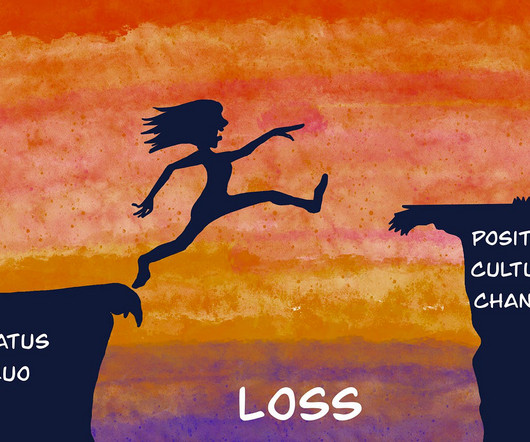6 Organizational Culture Change Strategies
Organizational Talent Consulting
JUNE 12, 2023
Just as no one is perfect, no organization is perfect, and no organizational culture is perfect. Organizational culture is everyone's responsibility, and leaders play a central role in influencing and reinforcing the company culture. Today, many leaders are asking how they can change the organizational culture.

















Let's personalize your content